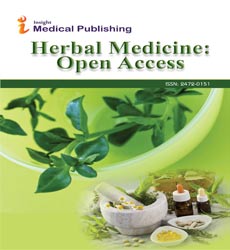In Vitro Antiplasmodial Activity of the Ghanaian Medicinal Plants
Stephen Y. Gbedema
College of Health Sciences, Ghana
Received Date: 2022-05-13 | Accepted Date: 2022-05-20 | Published Date: 2022-05-27Abstract
Introduction: Most rural communities and inmates of crowded refugee camps in Africa rely on herbs for treatment of malaria; as access to efficacious antimalarials against the multi-drug resistant Plasmodium falciparum in the African region is a challenge. However, very few of these folklore herbs have been scientifically investigated and proven useful for use.
Method: Nineteen extracts from ten indigenous plant species Adenia cissampeloides Planch. ex Hook., Anthocleista nobilis G. Don, Calliandra calothyrsus, Elaeias. guineensis Jacq., Entandrophragma angolense (Welw.) CDC, Mallotus oppositifolia (Geisel.) Müll. Arg., Sarcocephalus latifolius (J.E.Sm) E. A Bruce, Petersianthus macrocarpus (P. Beauv.) Liben, Polyalthia longifolia var. pendula and Terminalia ivorensis A. Chev; were evaluated against the multidrug resistant K1 strains of P. falciparum by the parasite lactate dehydrogenase (pLDH) assay.
Results: Thirteen extracts (7 alcoholic and 6 alkaloidal extracts) out of a total of 19 showed antiplasmodial activities with IC50 < 50 µg/ml.

Open Access Journals
- Aquaculture & Veterinary Science
- Chemistry & Chemical Sciences
- Clinical Sciences
- Engineering
- General Science
- Genetics & Molecular Biology
- Health Care & Nursing
- Immunology & Microbiology
- Materials Science
- Mathematics & Physics
- Medical Sciences
- Neurology & Psychiatry
- Oncology & Cancer Science
- Pharmaceutical Sciences
